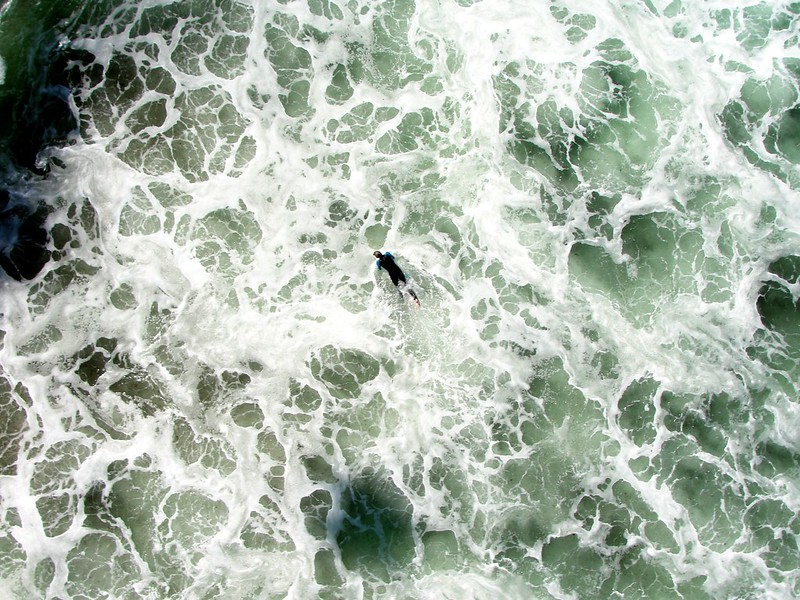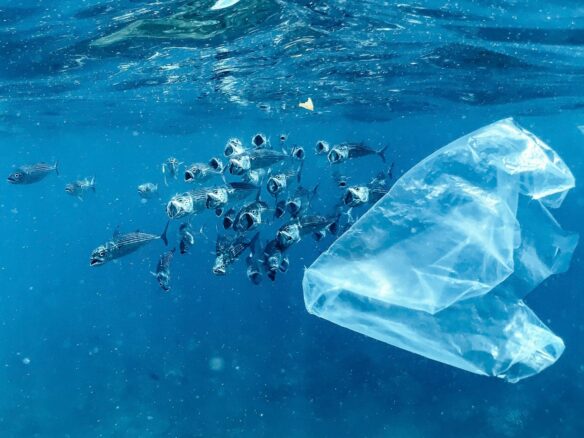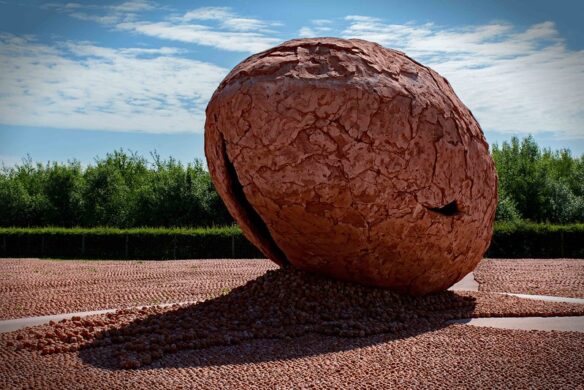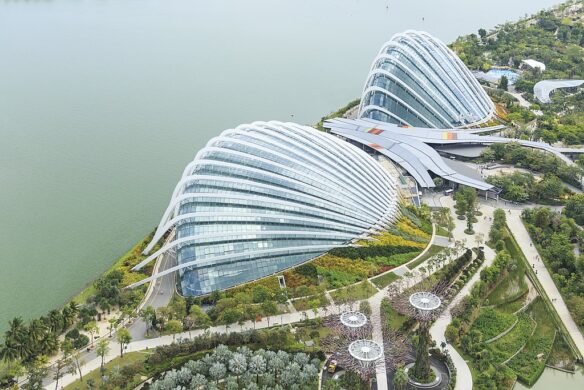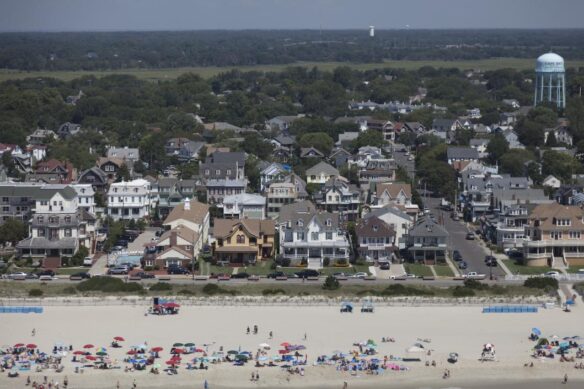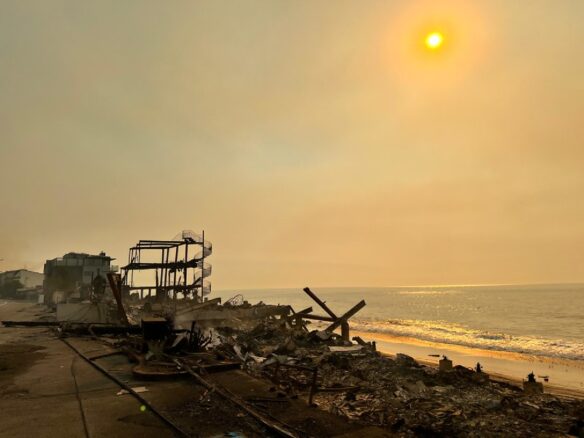Excerpt:
Babacar Thiaw has surfed Dakar’s beach for 20 years. To protect it for future generations, he realised he needed the help of a whole community
It took a wave of plastic-strewn water crashing over Babacar Thiaw as he paddled out to sea for him to decide to act.
By the time his surfboard had carried him back to Virage beach on the north shore of Senegal’s capital, Dakar, Thiaw had a plan that would make use of the surfing community he had built there.
Within a year he had turned Copacabana Surf Village, which he founded with his father two decades ago, into a hub for young Senegalese eco-surfers, organising beach cleans, environmental courses for children and Senegal’s first zero-waste restaurant. The cafe has signs up explaining to customers why they don’t use plastic bottles, straws, coffee pods or sugar sachets. In a country that produces an estimated 350,000 tonnes of plastic waste, most of which is not properly collected, Thiaw has found the work challenging, but is convinced it is crucial for a city where people are closely tied to the sea.
“We live this every day, we see it every day – in the sea, on the shore. Sometimes, you go to the sea and it feels like all the country’s trash has come together there. I love it here, but if I’m condemned to live with all of this rubbish for ever, that would be sad,” says Thiaw.
“This is our recreation area, but also look at how many people live off it – people like me, fishers, the guys selling sunglasses on the beach. It’s a vital economy. If we lose it, like we did during Covid, when everything was closed, it will be so hard on the people who work here…”

